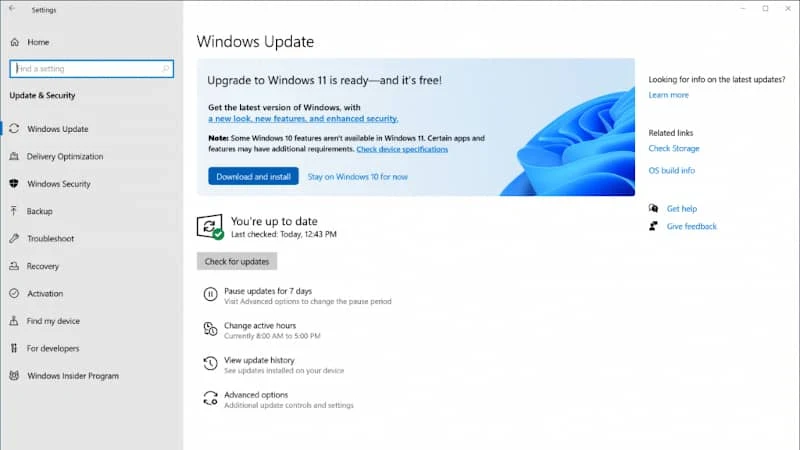📢 Windows 11 is now rolling out to supported devices
Microsoft releases Windows 11 to compatible devices running Windows 10. Here's how you can upgrade to this next generation Windows operating system.- Story published by Kunal Chowdhury on .
Microsoft releases Windows 11 to compatible devices running Windows 10. Here's how you can upgrade to this next generation Windows operating system.- Story published by Kunal Chowdhury on .
Microsoft announced the rollout of the Windows 11 operating system to the eligible devices running supported hardware configuration. This rollout begins one day ahead of the previous rollout plan, which was supposed to happen on October 5th.
If you are running Windows 10, you can check to see if your device is eligible to upgrade using the PC Health Check app. You can then check to see if the Windows 11 upgrade is ready for your specific device by opening Windows Update settings.

For those who are unaware of the minimum processor requirements to install Windows 11, you need at least an 8th Generation Intel processor or AMD Zen 2 processors. The speed of the processor should be 1 gigahertz (GHz) or faster with 2 or more cores on a compatible 64-bit system or System on a Chip (SoC).
You will also require a minimum of 4 GB RAM, and 64 GB or larger storage device, DirectX 12 compatible graphics / WDDM 2.x.
Make sure that you have a TPM 2.0 chip, and have enabled it from your BIOS settings. You will also need to enable the Secure Boot settings from the BIOS. For this to configure, you will need UEFI BIOS Settings.
For a complete list of minimum hardware requirements to install or upgrade to Windows 11, check out this post: "Minimum system requirements to install or upgrade to Windows 11".
If you are running a compatible Windows 10 device, you can start upgrading your system to Windows 11 by navigating to the Windows Update settings (Settings > Update & Security > Windows Update) page and selecting the Check for update button.
If your device is eligible and the upgrade is ready, the option to download and install will appear. If you are ready to install Windows 11, simply select Download and install.

Our measured and phased approach to the rollout of Windows 11 means we will offer the upgrade via Windows Update when data shows that your device is ready, as our objective is to provide a good upgrade experience
, says Microsoft. In case Microsoft detects an issue, such as an application incompatibility, the system will put a safeguard hold in place, and won't offer the upgrade until that issue is resolved.
Thank you for visiting our website!
We value your engagement and would love to hear your thoughts. Don't forget to leave a comment below to share your feedback, opinions, or questions.
We believe in fostering an interactive and inclusive community, and your comments play a crucial role in creating that environment.